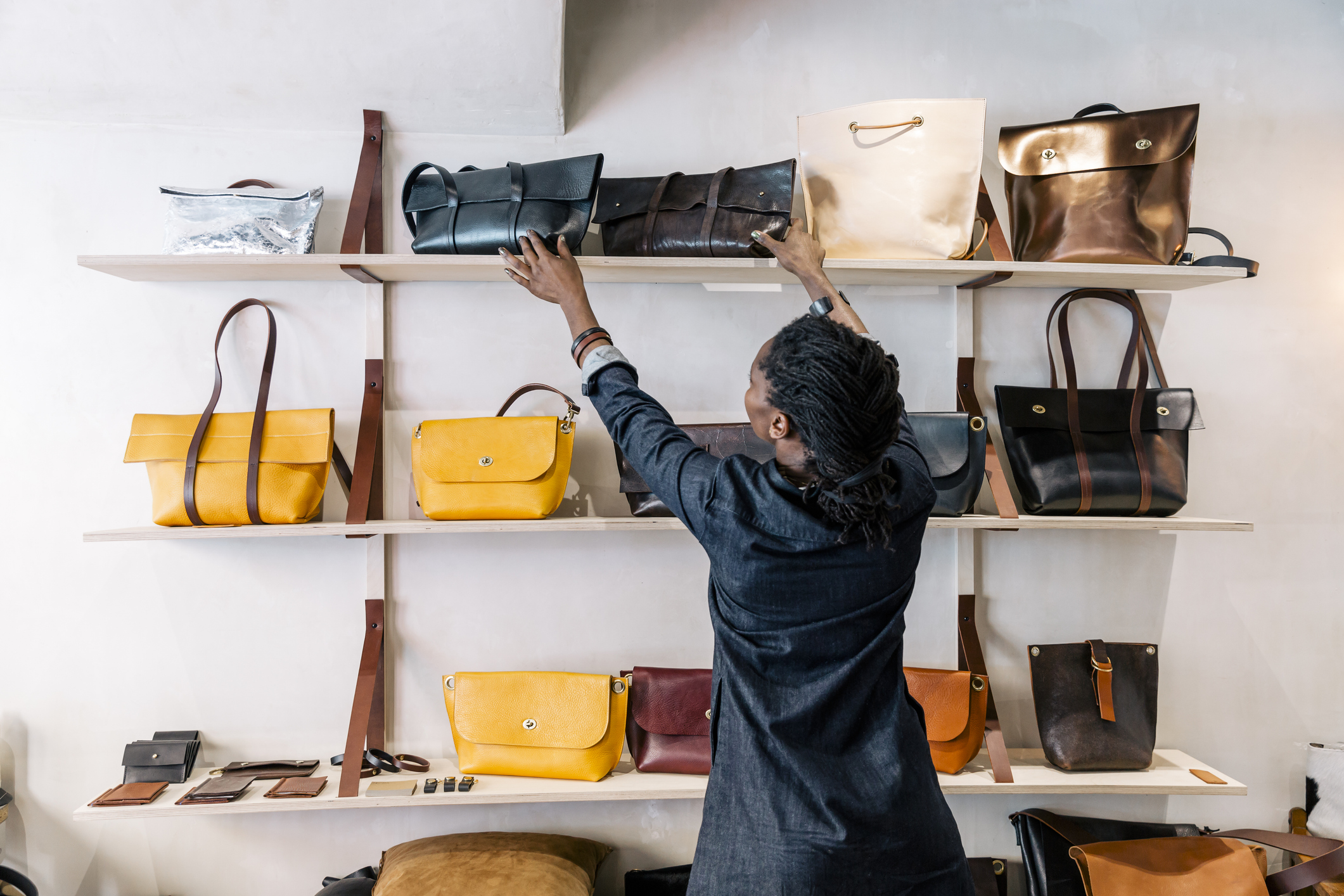Vacation Couture: Why Wealthy Americans Are Flying to Europe to Save on Luxury
Tariffs are making high-end shopping in the U.S. pricier — so savvy travelers are heading overseas, where VAT refunds and favorable exchange rates can offset the extra cost.


Profit and prosper with the best of Kiplinger's advice on investing, taxes, retirement, personal finance and much more. Delivered daily. Enter your email in the box and click Sign Me Up.
You are now subscribed
Your newsletter sign-up was successful
Want to add more newsletters?

Delivered daily
Kiplinger Today
Profit and prosper with the best of Kiplinger's advice on investing, taxes, retirement, personal finance and much more delivered daily. Smart money moves start here.

Sent five days a week
Kiplinger A Step Ahead
Get practical help to make better financial decisions in your everyday life, from spending to savings on top deals.

Delivered daily
Kiplinger Closing Bell
Get today's biggest financial and investing headlines delivered to your inbox every day the U.S. stock market is open.

Sent twice a week
Kiplinger Adviser Intel
Financial pros across the country share best practices and fresh tactics to preserve and grow your wealth.

Delivered weekly
Kiplinger Tax Tips
Trim your federal and state tax bills with practical tax-planning and tax-cutting strategies.

Sent twice a week
Kiplinger Retirement Tips
Your twice-a-week guide to planning and enjoying a financially secure and richly rewarding retirement

Sent bimonthly.
Kiplinger Adviser Angle
Insights for advisers, wealth managers and other financial professionals.

Sent twice a week
Kiplinger Investing Weekly
Your twice-a-week roundup of promising stocks, funds, companies and industries you should consider, ones you should avoid, and why.

Sent weekly for six weeks
Kiplinger Invest for Retirement
Your step-by-step six-part series on how to invest for retirement, from devising a successful strategy to exactly which investments to choose.
Trump tariffs are increasing the price of shopping for luxury goods in the United States.
In late July, the administration imposed a 15% tariff on goods imported from the European Union, hitting popular luxury items like French perfumes, high-end face creams, designer clothing and handbags.
To sidestep these higher costs, some Americans are considering a different approach: traveling abroad to shop directly in Europe. But does this strategy actually make financial sense?
From just $107.88 $24.99 for Kiplinger Personal Finance
Become a smarter, better informed investor. Subscribe from just $107.88 $24.99, plus get up to 4 Special Issues

Sign up for Kiplinger’s Free Newsletters
Profit and prosper with the best of expert advice on investing, taxes, retirement, personal finance and more - straight to your e-mail.
Profit and prosper with the best of expert advice - straight to your e-mail.
Traveling as a strategy to avoid luxury goods tariffs
The idea is an interesting one, and it makes sense on paper. A $12,000 Rolex watch costs $16,680 under the 39% tariff instituted on Switzerland. That $4,680 tariff fee is more than enough to cover airfare and a hotel stay for a trip.
And that’s just one item. Shoppers who pick up multiple watches, handbags, or designer clothes could save thousands by buying abroad.
Many are pairing these shopping trips with vacations — skiing in the Swiss Alps, touring France’s museums or visiting Abu Dhabi. Credit card travel rewards can help further cut costs, and savvy travelers can find other ways to save once overseas.
Avoid foreign transaction fees and earn rewards every time you swipe abroad with one of Kiplinger’s top cards for global travel, powered by Bankrate. Advertising disclosure.
The VAT refund in Europe
Traveling to Europe can be a particularly good deal. Americans who buy luxury goods in Europe and then transport them back to the United States may qualify for a value-added tax (VAT) refund. A VAT refund can often be more than 15%, and is issued for exported goods.
A VAT refund helps American buyers in several ways. Not only does it help keep an item’s price down, but that reduced price means that the tariffs will be reduced, since the item’s declared value will be lower. The VAT refund can help offset tariffs paid on the goods.
If you want to claim a VAT refund, start by reading the rules and details for the country you’re visiting. Some countries require your purchase to be above a certain amount, and the percentage of the refund varies, too.
You’ll usually need to buy all of your items at a single retailer, so shop around and strategically plan where you want to spend your money. Make sure that the retailer participates in the refund process, and have them fill out the refund document before you leave.
Keep the paperwork and your original sales receipt, and have the refund processed at the airport. You may need to present the goods, and they must still be unused to qualify. Be sure to leave extra time in your schedule to complete the VAT refund process.
Potential hangups with the plan
Travelers can’t necessarily avoid paying tariffs on luxury goods by traveling abroad to buy them, though some may conceal the items or state that they already owned the items when they left the United States.
According to U.S. Customs and Border Protection, anything that travelers bring back with them to the United States that they didn’t have when they left the country must be declared.
During that declaration process, items would be subjected to tariffs based on their value and their country of origin. If travelers fail to declare items, they could face serious consequences, including having the goods seized. Travelers may have to forfeit the goods, pay fines, and potentially face other legal action.
Does it make sense to travel to avoid luxury goods tariffs?
Traveling to buy luxury goods doesn’t mean you can necessarily avoid tariffs altogether, since you’re still legally obligated to declare the items that you purchased overseas. But the VAT refund in Europe can help you save money and can reduce the items’ declared value, so you’ll pay less in tariffs.
Making a trip exclusively to shop may be financially worth the cost on paper, but you’ll get more value out of it if you combine it with a trip made for entertainment. If you’ve been planning to take a trip overseas and will be spending on travel anyway, you might just combine it with some shopping to maximize the return you get on your travel expenses and airfare.
Related content
Profit and prosper with the best of Kiplinger's advice on investing, taxes, retirement, personal finance and much more. Delivered daily. Enter your email in the box and click Sign Me Up.

Paige Cerulli is a freelance journalist and content writer with more than 15 years of experience. She specializes in personal finance, health, and commerce content. Paige majored in English and music performance at Westfield State University and has received numerous awards for her creative nonfiction. Her work has appeared in The U.S. News & World Report, USA Today, GOBankingRates, Top Ten Reviews, TIME Stamped Shopping and more. In her spare time, Paige enjoys horseback riding, photography and playing the flute. Connect with her on LinkedIn.
-
 Quiz: Do You Know How to Avoid the "Medigap Trap?"
Quiz: Do You Know How to Avoid the "Medigap Trap?"Quiz Test your basic knowledge of the "Medigap Trap" in our quick quiz.
-
 5 Top Tax-Efficient Mutual Funds for Smarter Investing
5 Top Tax-Efficient Mutual Funds for Smarter InvestingMutual funds are many things, but "tax-friendly" usually isn't one of them. These are the exceptions.
-
 AI Sparks Existential Crisis for Software Stocks
AI Sparks Existential Crisis for Software StocksThe Kiplinger Letter Fears that SaaS subscription software could be rendered obsolete by artificial intelligence make investors jittery.
-
 One of the Most Powerful Wealth-Building Moves a Woman Can Make: A Midcareer Pivot
One of the Most Powerful Wealth-Building Moves a Woman Can Make: A Midcareer PivotIf it feels like you can't sustain what you're doing for the next 20 years, it's time for an honest look at what's draining you and what energizes you.
-
 I'm a Wealth Adviser Obsessed With Mahjong: Here Are 8 Ways It Can Teach Us How to Manage Our Money
I'm a Wealth Adviser Obsessed With Mahjong: Here Are 8 Ways It Can Teach Us How to Manage Our MoneyThis increasingly popular Chinese game can teach us not only how to help manage our money but also how important it is to connect with other people.
-
 Looking for a Financial Book That Won't Put Your Young Adult to Sleep? This One Makes 'Cents'
Looking for a Financial Book That Won't Put Your Young Adult to Sleep? This One Makes 'Cents'"Wealth Your Way" by Cosmo DeStefano offers a highly accessible guide for young adults and their parents on building wealth through simple, consistent habits.
-
 My Spouse and I Are Saving Money for a Down Payment on a House. Which Savings Account is the Best Way to Reach Our Goal?
My Spouse and I Are Saving Money for a Down Payment on a House. Which Savings Account is the Best Way to Reach Our Goal?Learn how timing matters when it comes to choosing the right account.
-
 We're 78 and Want to Use Our 2026 RMD to Treat Our Kids and Grandkids to a Vacation. How Should We Approach This?
We're 78 and Want to Use Our 2026 RMD to Treat Our Kids and Grandkids to a Vacation. How Should We Approach This?An extended family vacation can be a fun and bonding experience if planned well. Here are tips from travel experts.
-
 My First $1 Million: Retired From Real Estate, 75, San Francisco
My First $1 Million: Retired From Real Estate, 75, San FranciscoEver wonder how someone who's made a million dollars or more did it? Kiplinger's My First $1 Million series uncovers the answers.
-
 To Love, Honor and Make Financial Decisions as Equal Partners
To Love, Honor and Make Financial Decisions as Equal PartnersEnsuring both partners are engaged in financial decisions isn't just about fairness — it's a risk-management strategy that protects against costly crises.
-
 Top 5 Career Lessons From the 2026 Winter Olympics (So Far)
Top 5 Career Lessons From the 2026 Winter Olympics (So Far)Five lessons to learn from the 2026 Winter Olympics for your career and finances.
